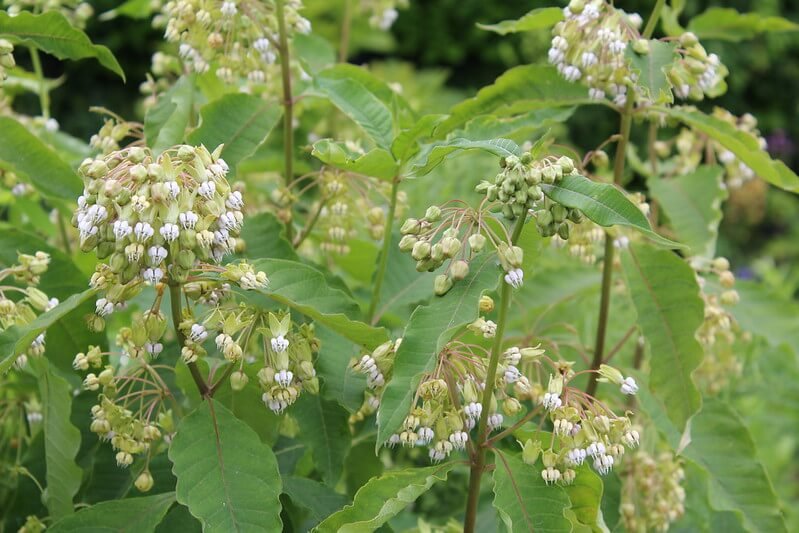Life Cycle: Perennial
Sun Exposure: Full, Partial
Soil Moisture: Medium, Medium-Dry, Dry
Height: 2 feet
Plant Spacing: 1-2 feet
Bloom Time: July - September
Bloom Color: White
Advantages: Pollinator Favorite, Bird Favorite, Deer Resistant, Recommended, but vigorous.
Host Plant: Monarch, Milkweed Tussock Moth, and 11 other species of butterflies and moths use this as a caterpillar host plant in our area (nwf.org)









